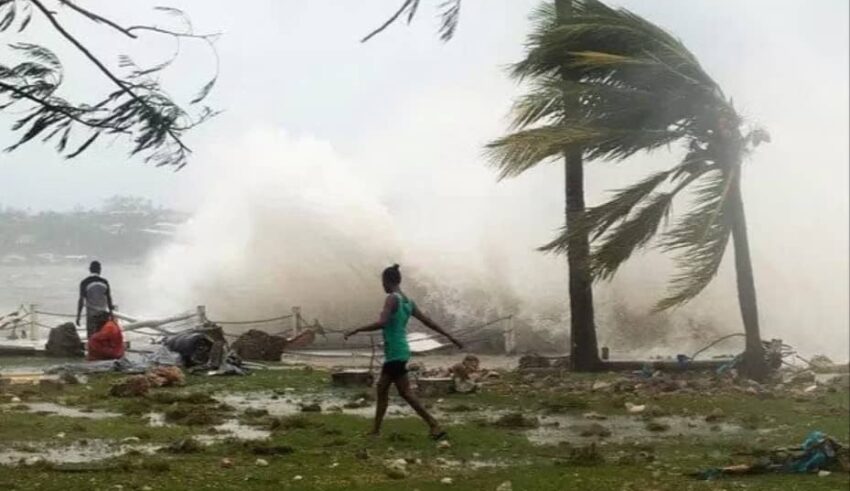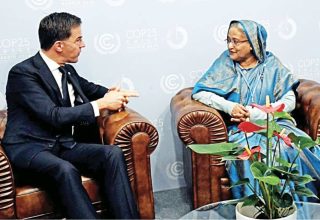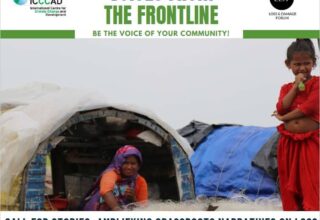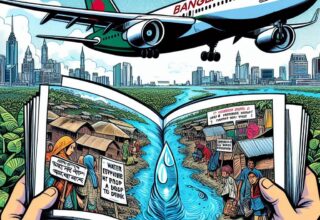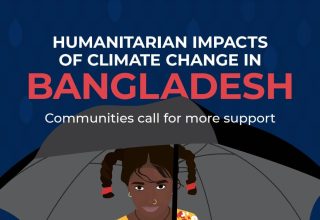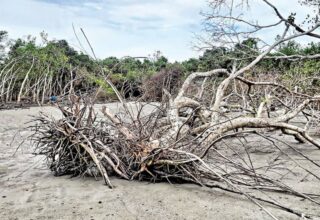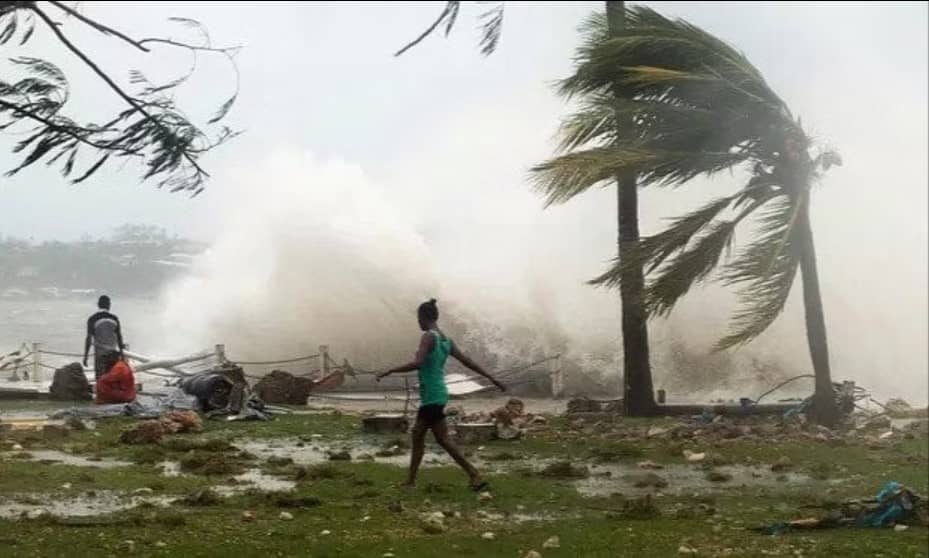
Last week, at the general assembly of the United Nations in New York, a resolution was adopted by consensus to ask the International Court of Justice (ICJ) for an advisory opinion on whether impacts of human-induced climate change are a violation of international human rights.
This resolution was put forward by the government of Vanuatu with the support of the Pacific Island countries and other vulnerable developing countries (including Bangladesh). It would have needed only a majority of the countries to have voted in its favour for it to be adopted. In the end, when it became clear that the majority of countries had already declared their intention to support the adoption of the resolution, no country opposed it. The resolution was thus adopted by consensus.
This was a very big victory for the vulnerable developing countries which are suffering the impacts of human-induced climate change, which is caused by the emissions of greenhouse gases by rich people, mostly living in rich countries. This is a manifest example of climate injustice, as the problem is caused by the rich and suffered by the poor.
There’s a backstory as to how and why this resolution came about, and what to expect next.
In the United Nations Framework Convention on Climate Change (UNFCCC) arena, vulnerable developing countries have been arguing for compensation for the adverse impacts of climate change from developed countries under the principle of “polluter pays”. However, the problem with the decision-making process at the UNFCCC is that every decision, including words, commas, and punctuation of every sentence must be unanimously adopted. This means that if a small group of governments, or even one powerful government, does not agree to a decision then it will not be adopted.
Hence, when vulnerable countries asked for compensation from the polluting countries, the polluters refused to agree and there was never any decision to make them pay.
There was, however, a compromise adopted some years ago to agree to discuss loss and damage, without referring to liability and compensation. In fact, the very words “liability and compensation” are taboo in the context of the UNFCCC!
Nevertheless, climate-vulnerable countries did achieve a breakthrough at COP27 in November 2022 when all countries agreed to establish a funding mechanism to address loss and damage.
However, it is important to note that this agreement was not adopted under a paradigm of “polluter pays” but under the paradigm that all countries bear responsibility for their emissions and will provide funds based on solidarity rather than compensation.
But this does not mean that there are no other avenues for pursuing the polluters under international law, and that is what the government of Vanuatu did by tabling the aforementioned resolution at the UNGA. Here, resolutions can be adopted by a simple majority vote and do not require consensus from all countries.
The action will now shift to the ICJ in The Hague in The Netherlands where the court will initially seek advice from all countries and parties who wish to make submissions. Once they receive all the submissions, they will then examine all the arguments and provide their ruling.
This will take some time, but at least the process has now started.
The origin of this idea (of going to the UN General Assembly, where resolutions can be adopted by a simple majority) was first developed by a group of young law students from universities in the Pacific. They then pitched it to the governments of the Pacific Islands and the government of Vanuatu picked it up and ran with it – against some formidable opposition at the beginning. Nevertheless, Vanuatu was able to gain more and more allies through effective diplomacy both with governments and civil society, eventually winning a major victory. This is an excellent example of young people transforming advocacy to effective action.
Finally, it is important to note that this is just one step, although a very important one, on the way to getting justice for the victims of climate change from polluters who are causing the problem. Nevertheless, it opens a new avenue to apply the “polluter pays’ principle under international humanitarian law.
Originally this article was published on April 05, 2023 at Daily Star. The author Prof. Saleemul Huq is the director of the International Centre for Climate Change and Development (ICCCAD) at the Independent University, Bangladesh (IUB).
Email: saleemul.huq@icccad.org

